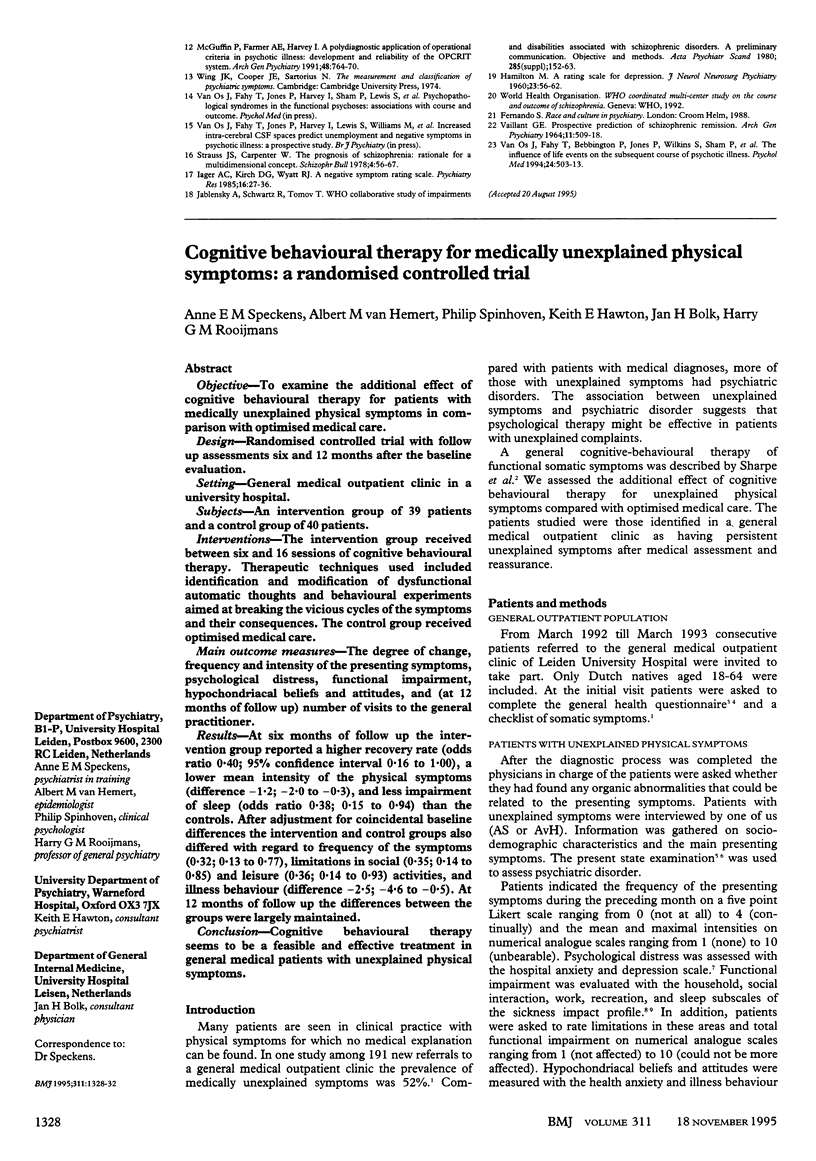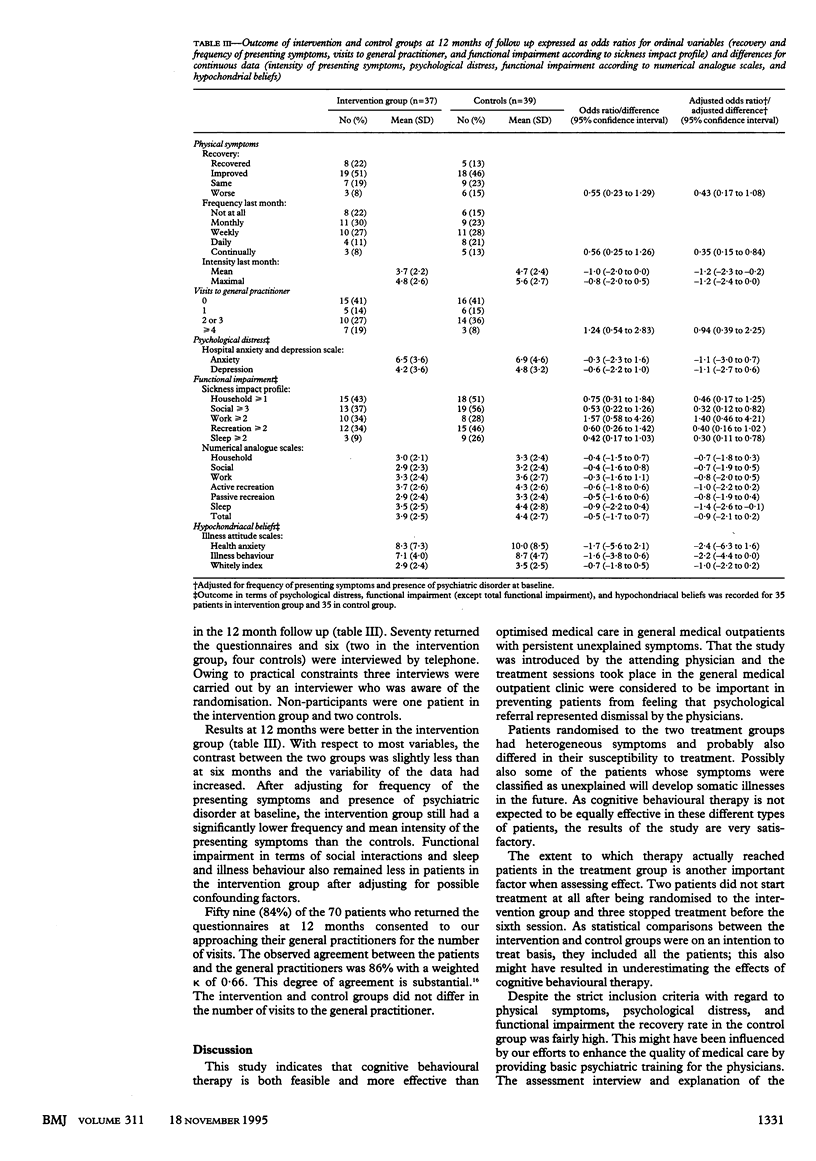Abstract
OBJECTIVE--To examine the additional effect of cognitive behavioural therapy for patients with medically unexplained physical symptoms in comparison with optimised medical care. DESIGN--Randomised controlled trial with follow up assessments six and 12 months after the baseline evaluation. SETTING--General medical outpatient clinic in a university hospital. SUBJECTS--An intervention group of 39 patients and a control group of 40 patients. INTERVENTIONS--The intervention group received between six and 16 sessions of cognitive behavioural therapy. Therapeutic techniques used included identification and modification of dysfunctional automatic thoughts and behavioural experiments aimed at breaking the vicious cycles of the symptoms and their consequences. The control group received optimised medical care. MAIN OUTCOME MEASURES--The degree of change, frequency and intensity of the presenting symptoms, psychological distress, functional impairment, hypochondriacal beliefs and attitudes, and (at 12 months of follow up) number of visits to the general practitioner. RESULTS--At six months of follow up the intervention group reported a higher recovery rate (odds ratio 0.40; 95% confidence interval 0.16 to 1.00), a lower mean intensity of the physical symptoms (difference -1.2; -2.0 to -0.3), and less impairment of sleep (odds ratio 0.38; 0.15 to 0.94) than the controls. After adjustment for coincidental baseline differences the intervention and control groups also differed with regard to frequency of the symptoms (0.32; 0.13 to 0.77), limitations in social (0.35; 0.14 to 0.85) and leisure (0.36; 0.14 to 0.93) activities, and illness behaviour (difference -2.5; -4.6 to -0.5). At 12 months of follow up the differences between the groups were largely maintained. CONCLUSION--Cognitive behavioural therapy seems to be a feasible and effective treatment in general medical patients with unexplained physical symptoms.
Full text
PDF




Selected References
These references are in PubMed. This may not be the complete list of references from this article.
- Bergner M., Bobbitt R. A., Carter W. B., Gilson B. S. The Sickness Impact Profile: development and final revision of a health status measure. Med Care. 1981 Aug;19(8):787–805. doi: 10.1097/00005650-198108000-00001. [DOI] [PubMed] [Google Scholar]
- Pilowsky I. Dimensions of hypochondriasis. Br J Psychiatry. 1967 Jan;113(494):89–93. doi: 10.1192/bjp.113.494.89. [DOI] [PubMed] [Google Scholar]
- Sharpe M., Peveler R., Mayou R. The psychological treatment of patients with functional somatic symptoms: a practical guide. J Psychosom Res. 1992 Sep;36(6):515–529. doi: 10.1016/0022-3999(92)90037-3. [DOI] [PubMed] [Google Scholar]
- Zigmond A. S., Snaith R. P. The hospital anxiety and depression scale. Acta Psychiatr Scand. 1983 Jun;67(6):361–370. doi: 10.1111/j.1600-0447.1983.tb09716.x. [DOI] [PubMed] [Google Scholar]
- van Hemert A. M., Hengeveld M. W., Bolk J. H., Rooijmans H. G., Vandenbroucke J. P. Psychiatric disorders in relation to medical illness among patients of a general medical out-patient clinic. Psychol Med. 1993 Feb;23(1):167–173. doi: 10.1017/s0033291700038952. [DOI] [PubMed] [Google Scholar]
- van Hemert A. M., den Heijer M., Vorstenbosch M., Bolk J. H. Detecting psychiatric disorders in medical practice using the General Health Questionnaire. Why do cut-off scores vary? Psychol Med. 1995 Jan;25(1):165–170. doi: 10.1017/s003329170002818x. [DOI] [PubMed] [Google Scholar]



